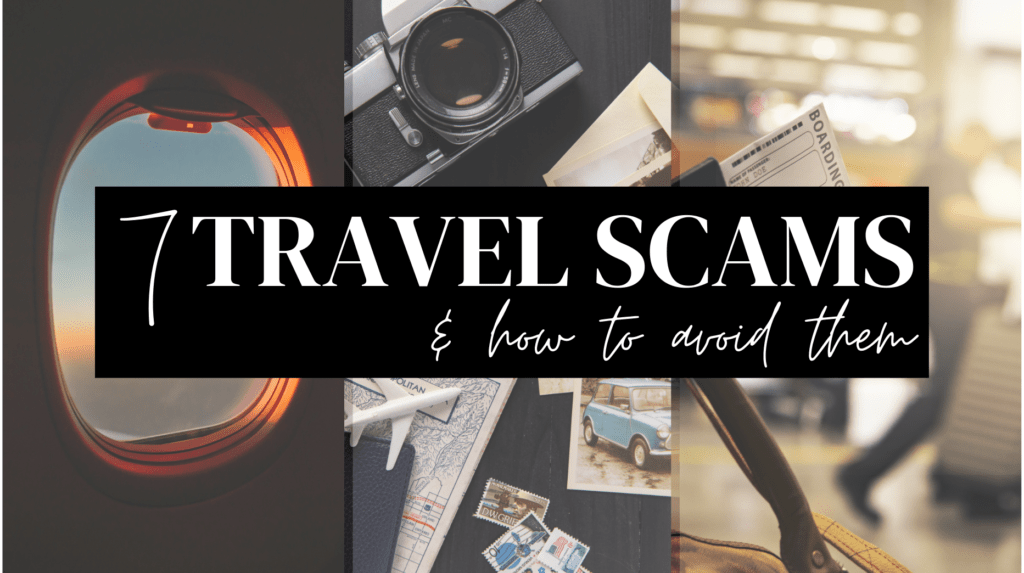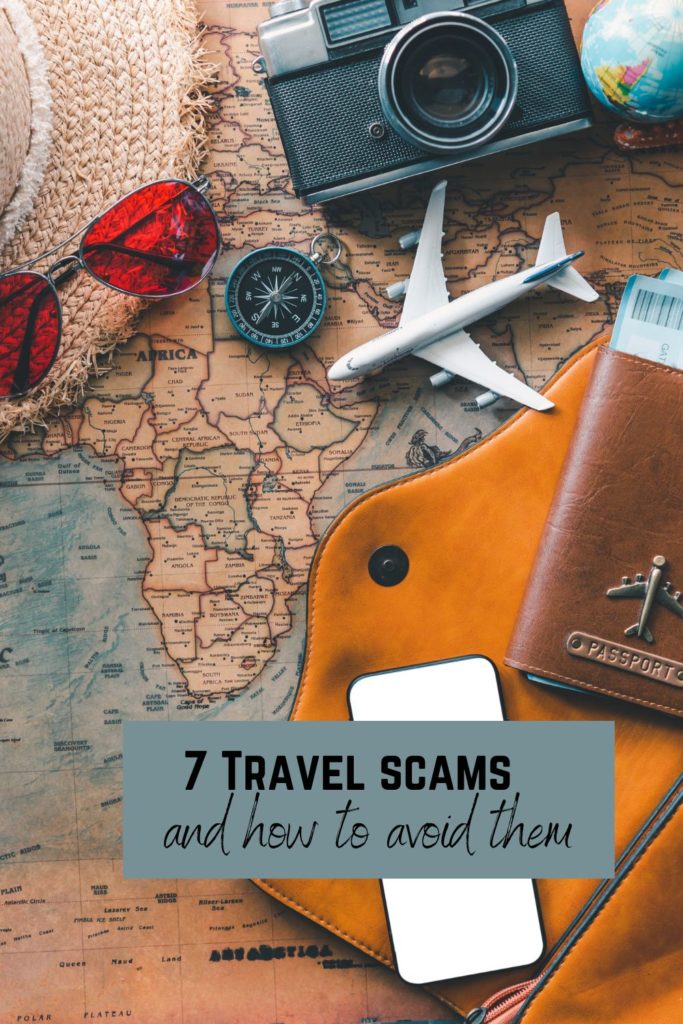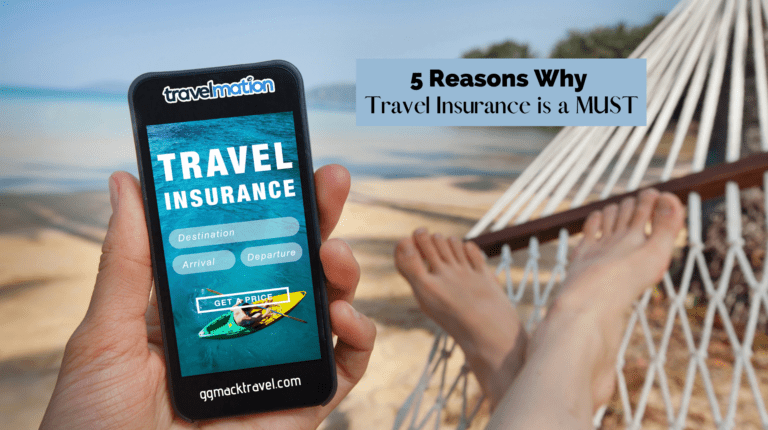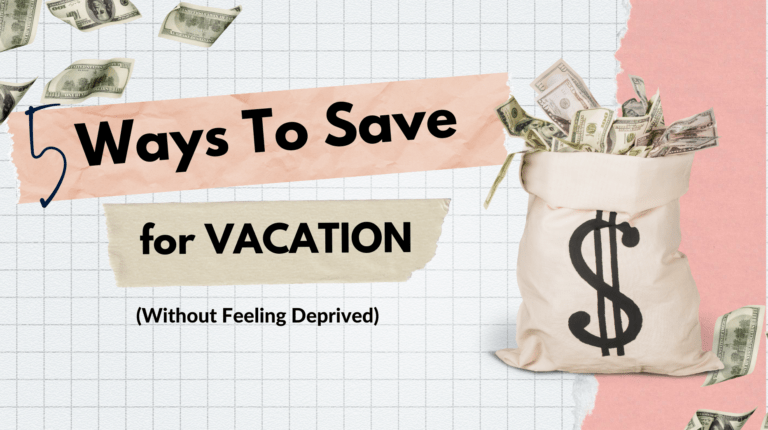The 7 Common Travel Scams that Will Ruin Your Vacation – and How to Avoid Them

We all want to get the most bang for our buck when planning our vacations, and we all want to find great deals while we’re traveling.
It’s wise to keep an eye out for potential savings or good deals when exploring other states, cultures, and countries, right?
The problem, of course, is that scammers know we’re distracted looking for deals…so the scammers are looking for us!
Some of the most common travel scams target tourists, and they can be found all over the world. If you’re not careful, you could find yourself the victim of a travel scam.
To help you avoid being scammed on your next vacation, we’ve compiled a list of some of the most common travel scams.
Here are 7 of the most common travel scams — and some easy tips to help you or someone you love avoid becoming the next victim!

1.) The Street Scam:
You’re walking down the street when you’re suddenly approached by someone who looks friendly and helpful. They may tell you that you look “new in town” and offer advice on some of the best places to visit. And once they offer that advice, they may then ask if you can repay them with a little bit of cash. This is a common scam, especially in larger cities.
If you find yourself in this situation, it’s best to just walk away. Don’t engage with the person if you don’t need help and don’t reach for your wallet at any time.
Why it’s a scam:
This is most likely a diversion scam, where the driver is trying to distract you so that their accomplice can pick your pocket or steal your purse. They may also try to sell you fake tickets to nearby popular attractions to get even larger sums from you.
How to avoid becoming a victim:
If you’re approached by someone offering help, don’t get too close to the car and stay vigilant. Don’t pull out your wallet or open your purse for any reason. It’s best to walk away.
2.) The Taxi Scam:
This is a common scam in many different countries. You’re looking for a taxi and you finally find one. You get in as you drive away, the driver suddenly tells you that the meter is broken and charges you an exorbitant amount of money at the end of the ride.
Why it’s a scam:
The driver is trying to take advantage of you by not using the meter and overcharging you for the ride.
How to avoid becoming a victim:
In many countries, it’s required by law that taxis have working meters. Make sure you check to see if the meter is working before you get into the taxi. If the taxi doesn’t have a working meter, don’t get in. Find another one. You can also agree on a price before getting in the car to avoid any issues later on.
3.) The Restaurant Scam:
This scam can happen in any type of restaurant, usually when they are aware that the dinner party is from another country. This happens when you receive your bill and it’s much higher than you expected. When you question it, the waiter or waitress says that there was a “mix-up” and that’s why the bill is so high. At this point they will usually realize they got caught and give up by adjusting the bill.
Why it’s a scam:
The restaurant is trying to take advantage of you by overcharging you for your meal.
How to avoid becoming a victim:
Have an idea of what the cost of your order will be ahead of time. Check your bill before you pay after it arrives to see if it is what you expect. Make sure that everything on the bill is correct and that you’re only being charged for what you ordered. If there’s a problem, ask to speak to the manager.
4.) The Fake Tour Guide Scam:

Here’s the scenario: You’re in a new city and, of course, are amazed as you study all the new sights. Close by, a man is speaking to a crowd of people about the attractions and he seems to be very knowledgable. He spots you listening in and asks if you’d like to join his tour. However, he insists on cash and does not offer any documentation of the tour or any credentials or identification.
Why it may be a scam:
This man may not be a licensed tour guide, and just trying to make some quick money by leading you around to all the popular tourist traps. He may also be likely try to sell you fake tickets to an attraction that you are not near – or overcharge you for souvenirs he happens to be carrying at the same time. He could even distract you from the nearby pickpockets he is working with.
How to avoid becoming a victim:
The best way to avoid this scam is to only take tours from licensed tour guides. If you’re approached by someone offering a tour, ask to see their credentials. If they don’t have any, walk away.
When using a travel agent, they will help you secure tickets ahead of time in your destination whenever possible. That way, you can avoid any possible scams related to ticket sales when you’re actually at the attractions.
5.) The ATM scam:
Let’s say you’re at an ATM, trying to withdraw cash, when a helpful stranger comes up and offers to help you with the machine they say is “tricky”. Or, they may say that that they know how to get around the ATM fees. Once you’ve given them your card and PIN, they quickly disappear with all of your information – and possibly all of your money.
Why it’s a scam:
This is a classic case of theft, where the person pretends to be helpful in order to steal your valuables. In this case, your card and PIN. Once they have your information, they can clean out your bank account.
How to avoid becoming a victim:
Never accept help from a stranger at an ATM, no matter how friendly or helpful they seem. If you’re having trouble with the machine, call your bank or credit card company for assistance. And always be sure to cover your hand when you enter your PIN, so that no one can see it. And write down your card information and bank phone numbers to leave with a trusted person at home so that you can call the bank to report any thefts.
6.) The Bracelet Scam:
This one is common in France. You’re walking down the street when you’re approached by someone who wants you “show you” a bracelet they made. They ask you to hold it out your hand as they fasten it around your wrist.
Why it’s a scam:
This is a scam to scare you into buying the bracelet as to not be “arrested for theft”. The person will tell you that if you don’t buy the bracelet, they will call the police because you are wearing something that isn’t yet purchased.
How to avoid becoming a victim:
The best way to avoid this scam is to keep walking and don’t engage with the person trying to sell you anything at close-range. If they try to put the bracelet on your wrist, quickly move your hand away. Do not stop to listen to their story or engage in the conversation. Simply say “no, thank you” and move on.
7.) The “free Gift” Scam
Okay, this one is debatable as far as a “scam”. But by now, we should have really caught on to how this scenario works. But have you ever been at a hotel and been asked to contact the front desk to retrieve your “free” spa package in exchange for a 2 hour presentation?
Yeah. That’s the one.
Why its somewhat of a “scam”:
In reality, usually you’ll go to the presentation, stay there for 4+ hours and then are made to endure a high-pressure sales pitch for a hotel timeshare.
The truth is, these “free gifts” come with so many stipulations and conditions that they’re really not “free” at all. And even if they were, who wants to spend their vacation time sitting through a timeshare pitch that will eventually cost you thousands of dollars in the end?
How to avoid becoming a victim:
Just say no. It’s really that simple. If someone approaches you with a “free gift”, politely decline and walk away. Yeah, a free massage may be nice, but consider the payment. Try not to engage in conversation, don’t give them your contact information, and definitely don’t go to the presentation if you understand the whole point of it.
SUMMARY:

Overall, yes, there are some travel scams out there. But don’t let that stop you from exploring the world. Just be aware of what’s out there, and take precautions to avoid becoming a victim. With a little bit of research and planning, you can have a safe and scam-free trip!
And if you want to make sure you aren’t being taken advantage of when it comes to booking your trip, be sure to use a reputable travel agent like [MY COMPANY]. We can help you avoid scams, find the best deals, and make sure your trip is everything you’ve ever dreamed of!
Just contact me at the link below to chat about your travel dreams!





